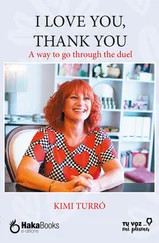Nymphadora sounded beautiful and elegant and pretty and peak. I liked that the Nymphadora in our Bible ran a church in her own home. I was proud of the name, but when I turned and threw a smile at Mumma she did not return it.
When we were all newly named, Mumma inspected the ten of us and still did not speak. She raised her hand and Miss Vera and another Star rolled out a tea table stacked with food. Real food: bowls of potatoes and biscuits and a lank turkey with its bony ankles wrapped in paper to keep its marrow warm. Our deflated stomachs, milk-lined and sugary, leapt in revolt. But Mumma wouldn’t let us eat. Instead, she stood in front of the table.
“Girls,” she said, “you are almost Infant Stars. Do you know what makes a Star shine?”
No one answered. We were all watching the spread behind her, too hungry to speak.
“Girls,” she said, “I have asked you a question. A tenet of being an Infant Star is to speak when you are spoken to. So we will begin again. What makes a Star shine?”
The newly named Herod sniffed loudly, wiped the snot from her face. “The light of heaven?” she offered, cautiously. It was a good guess, as we’d had to drone this phrase incessantly for the past few days as we fasted.
“No,” Mumma said. “No. Not the light of heaven. What makes a Star of the Morning shine, what makes an Infant Star shine among all the other pieces of dust and dirt and rock that are our Lord’s creations, is self-control. Denial. Denial builds up inside little Infant Stars like you, makes your moral fiber strong like flint, so that when the world tests you, when the world rubs up against you all vicious and sharp and everything within you, everything is telling you to give in, all you desire is to give in, do you know what happens? You don’t give in. You don’t become soft. You ignore your desires. The world’s trials stir up a light in you so strong, so pure, so true, no man on earth can put it out. Denial of your desires is what makes an Infant Star shine.”
Mumma leaned up against the table and crossed her arms over her chest. She lifted her chin up to the paper clouds and began to declaim.
And even though she was my mother and even though I worshipped her, I wanted to groan because I was a smart little Star and I could read between the lines and see, despite that turkey’s paper socks, promising meat kept warm, we weren’t going to be eating anything anytime soon, and when we finally did, it would most certainly be cold.
“The very first Star denied herself everything so that she could be a beacon of light for others. Her name was Mary Whitman and she was a slave.”
Herod gasped at this. We were Negroes, it was true, but we were all Northern Negroes, born of at least two generations of freed men. Those with slavery closer to them than that kept it hidden. The first Emancipation Day was nearly forty years past. Slaves were the Israelites in the Bible, they were the figures drawn in quick blurry clouds of black ink in the illustrated editions of Uncle Tom’s Cabin we read in school. Though we understood that some of us were once them, and that we had to bake cakes every church bazaar for those down who were still pretty much them, it never occurred to us as children that slaves could live in Spring City, Massachusetts, any more than camels could.
“Yes,” Mumma said. “She was a slave and she ran away and came here to the North. But in order to run, she had to deny herself everything. She had to deny herself love. She had a mother and father and husband and little babies and she had to leave them behind. She had to deny herself love. And she ran and she ran and when she came here, when she came to the North, she was so full of light from her trials that she became a Star. And she began this sisterhood, to teach other Negro women how to shine like her. Because in order for the Negro race to survive and thrive, we need a hundred stars, a thousand stars, full of light to show others the way.”
Mumma rested against the table and I heard the wood groan and just a whiff, just the tiniest hint, of melted butter filled the air.
“Not everyone can be a Star,” she continued. “Not everyone can be so strong as to deny themselves to make sure the Negro race survives. But we believe you Infant Stars have the potential to become Stars of the Morning.”
And here, Mumma gestured to Miss Dora, who brought her a wooden-backed chair, which Mumma sat down on, arranged her skirts, made herself comfortable, and I cannot remember the rest of the speech from that night, because my attention was taken up with keeping my lips pressed tight together and sucking hard on my own tongue to keep from standing up, pushing my own mother aside, and lapping up the mounds of potatoes stacked behind her.
Later, when we were leaving Initiation, my stomach full, Mumma said, “I wish you hadn’t picked Nymphadora for your name. It’s just not right.”
“I like it.” I could still taste a bit the turnip greens’ juice on my lips.
“Yes,” she said. “I suppose it’s pretty.” She sighed. “I was hoping you’d have a more sober name. Like Joshua or David.”
Mumma’s star name was Job. She was so, so, proud of that name, of its rectitude and serendipity. Choosing that name confirmed to her that she was born to be a Star. And if she was meant to be a Star, then me, made in her image, must be destined to be one too.
She straightened and peered ahead of us into the dark. We were walking along the short stretch of Main Street. All around us was night and Mumma and I kept our eyes out for the blazing lantern that hung from the sign of our store.
Mumma took my hand in the dark. “It wasn’t you that picked Nymphadora,” she said. “It was Providence.” And then I knew that this was grave, because Mumma didn’t like to get religious unless the situation absolutely warranted it. She accepted it as the will of the universe that my Star name should be so scandalous. She decided, “There’s a reason for it. Only time will tell us what it is.”
I THINK MY name, its rowdiness, I think it all was leading to Dr. Gardner and what he asked me to do, and what I agreed to do, and I know it would kill her all over again if she knew. Sometimes I can’t help exercising the perverse logic that maybe Dr. Gardner’s friendship is part of the Providence Mumma believed in so heartily. As soon as I think it, I feel the cynicism so fiercely, like a sharp pain in my eyetooth. And then I make the pain keener when I remember that, in the end, even Mumma herself had given up on Providence.
She and Pop left me behind. I was not even in the house with them when they killed themselves. Mumma sent me out on what I know now to be a fool’s errand: she told me the undertaker needed some tincture immediately and sent me to his house far from the center of town, knowing it would take me nearly an hour to walk there and back. While I was arguing with Mr. Dawes over the tincture — he insisted he had not ordered it and I insisted he must have, because Mumma and Pop never made mistakes — they drank their secret drink.
Mr. Dawes called me a batty old girl, and while I drew myself up in my patent leather boots and huffed away from him and did my best to make a dramatic exit from his lane, Mumma and Pop sat in their seats by the fire and they seized and shook and raged in their chairs. By the time I came home and found an envelope tacked to our front door with my name on it, written in Mumma’s hand, it was done.
I took the envelope, already knowing something was wrong, and opened the door with one hand while slitting its top with the other. I called their names as I unfolded the note, not even really reading it, walking to the parlor where I found the two of them. Their death jitters had thrown them from their seats. Pop was curled around the feet of his armchair and Mumma was laid out, five-pointed, in the middle of the throw rug.
Читать дальше
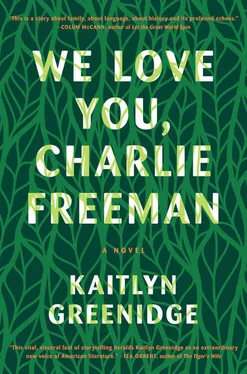





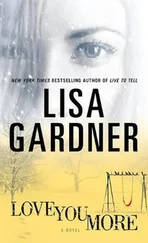
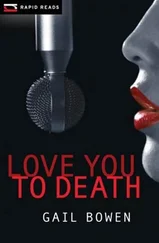
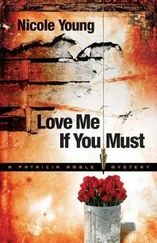

![Ally Carter - [Gallagher Girls 01] I'd Tell You I Love You But Then I'd Have to Kill You](/books/262179/ally-carter-gallagher-girls-01-i-d-tell-you-i-lo-thumb.webp)
